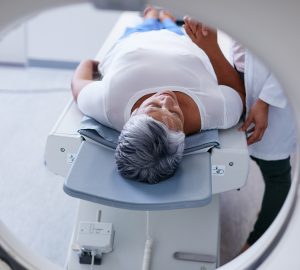Recovery is a deeply personal journey, one that requires not just courage but also the right support. Intensive Outpatient Programs (IOPs) have emerged as a pivotal element in the continuum of care for individuals battling addiction and mental health issues. These programs offer the flexibility and intensive care necessary to foster recovery while allowing individuals to live in their community. This blog delves into how tailoring IOPs to individual needs is not just beneficial but essential for a sustainable journey to wellness.
Understanding Intensive Outpatient Programs
IOPs are structured programs designed to provide focused and intensive therapy and support. They typically involve several hours of therapy per week, offering a middle ground between inpatient care and traditional outpatient services. The key to their effectiveness lies in their ability to be customized. By tailoring treatment plans, IOPs can address the unique psychological, social, and behavioral needs of each individual.
The Importance of Personalization
- Assessment and Individualized Treatment Plans: Every journey begins with understanding the unique challenges and needs of the individual. Through comprehensive assessments, healthcare professionals can develop personalized treatment plans. These plans consider the person’s substance use history, mental health status, and personal circumstances, ensuring a targeted approach to recovery.
- Flexible Scheduling: Personalization also extends to the scheduling of therapy and activities. For many, the appeal of an IOP is the ability to maintain their daily responsibilities while receiving treatment. Flexibility in scheduling allows individuals to integrate treatment into their lives without significant disruption.
- Varied Therapeutic Modalities: No single Intensive Outpatient Programs approach fits all. Personalizing treatment means employing various modalities like Cognitive Behavioral Therapy, Group Therapy, and Family Therapy, based on what resonates most with the individual. This variety ensures a more engaging and effective treatment experience.
Integrating Support Systems
A vital aspect of personalized Intensive Outpatient Programs is the integration of support systems into the treatment plan. This includes family involvement, peer support groups, and community resources. Encouraging family therapy and participation can enhance understanding and support within the home environment, a critical factor for long-term recovery. Additionally, connecting individuals with peer support groups provides a sense of community and belonging, crucial for maintaining sobriety.
Continual Assessment and Adaptation
Personalization is not a one-time task but a continual process. Regular assessments allow for the adjustment of treatment plans to meet evolving needs. As individuals progress through recovery, their needs can change. Ongoing evaluation ensures that the IOP remains responsive and effective throughout the recovery journey.
Choosing the Right Program
Selecting the right Intensive Outpatient Programs is a crucial step on the path to recovery. It’s essential to look for programs that emphasize personalized care and have a track record of success. For those seeking a compassionate and tailored approach to recovery, consider exploring options like drug rehab, which are known for their commitment to individualized treatment and comprehensive care.
Conclusion
The path to recovery is not a one-size-fits-all journey. Intensive Outpatient Programs that prioritize personalization offer a more adaptable, responsive, and ultimately effective approach to treatment. By focusing on the individual’s unique needs, IOPs can provide the right level of support and flexibility, making the journey to wellness a more achievable and sustainable one. Remember, recovery is a personal journey, and with the right tailored support, a life of wellness and fulfillment is within reach. For further reading on the importance of individualized care in addiction treatment, consider resources like SAMHSA’s principles of effective treatment and NAMI’s guide on mental health conditions.









